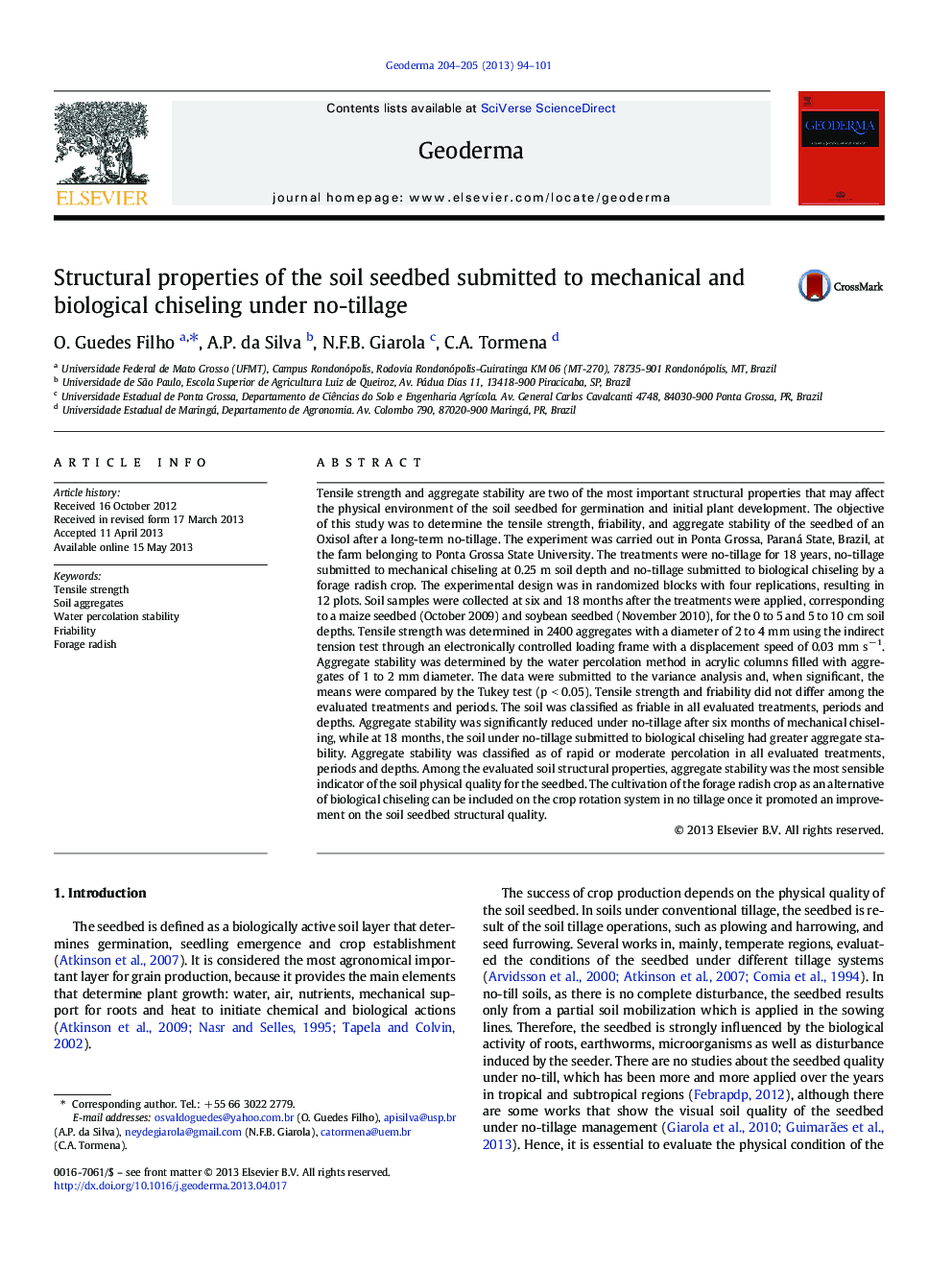| کد مقاله | کد نشریه | سال انتشار | مقاله انگلیسی | نسخه تمام متن |
|---|---|---|---|---|
| 6409199 | 1629484 | 2013 | 8 صفحه PDF | دانلود رایگان |
- Tensile strength and aggregate stability were determined for a no-till soil.
- Aggregate stability was efficient to detect changes in the soil structure.
- The effects of mechanical chiseling on soil structure were temporary.
- Biological chiseling improved the soil aggregate stability.
Tensile strength and aggregate stability are two of the most important structural properties that may affect the physical environment of the soil seedbed for germination and initial plant development. The objective of this study was to determine the tensile strength, friability, and aggregate stability of the seedbed of an Oxisol after a long-term no-tillage. The experiment was carried out in Ponta Grossa, Paraná State, Brazil, at the farm belonging to Ponta Grossa State University. The treatments were no-tillage for 18 years, no-tillage submitted to mechanical chiseling at 0.25 m soil depth and no-tillage submitted to biological chiseling by a forage radish crop. The experimental design was in randomized blocks with four replications, resulting in 12 plots. Soil samples were collected at six and 18 months after the treatments were applied, corresponding to a maize seedbed (October 2009) and soybean seedbed (November 2010), for the 0 to 5 and 5 to 10 cm soil depths. Tensile strength was determined in 2400 aggregates with a diameter of 2 to 4 mm using the indirect tension test through an electronically controlled loading frame with a displacement speed of 0.03 mm sâ 1. Aggregate stability was determined by the water percolation method in acrylic columns filled with aggregates of 1 to 2 mm diameter. The data were submitted to the variance analysis and, when significant, the means were compared by the Tukey test (p < 0.05). Tensile strength and friability did not differ among the evaluated treatments and periods. The soil was classified as friable in all evaluated treatments, periods and depths. Aggregate stability was significantly reduced under no-tillage after six months of mechanical chiseling, while at 18 months, the soil under no-tillage submitted to biological chiseling had greater aggregate stability. Aggregate stability was classified as of rapid or moderate percolation in all evaluated treatments, periods and depths. Among the evaluated soil structural properties, aggregate stability was the most sensible indicator of the soil physical quality for the seedbed. The cultivation of the forage radish crop as an alternative of biological chiseling can be included on the crop rotation system in no tillage once it promoted an improvement on the soil seedbed structural quality.
Journal: Geoderma - Volumes 204â205, August 2013, Pages 94-101
